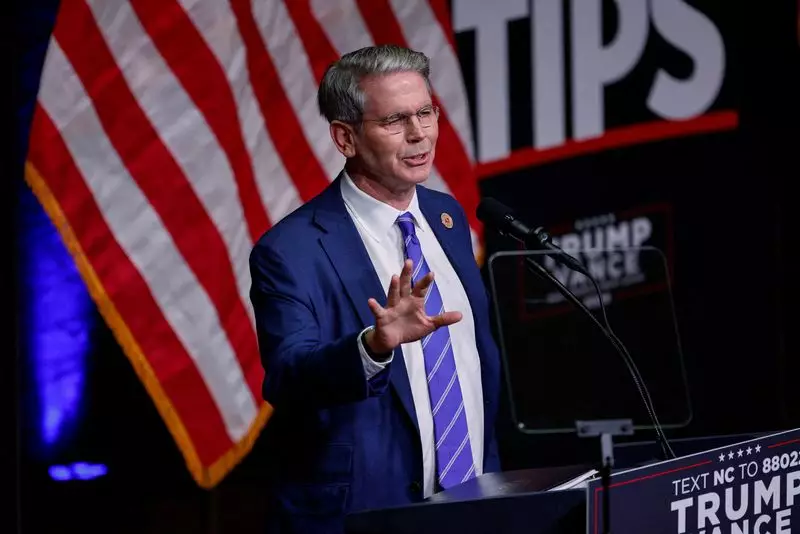The recent appointment of Scott Bessent as the U.S. Treasury Secretary by President-elect Donald Trump marks a significant development in American economic policy. This decision concludes a week of speculation and competition among high-profile candidates, shedding light on the direction Trump aims to take with crucial economic matters, regulatory reforms, and international relations. Wall Street, always keen on identifying trends in economic governance, greeted Bessent’s nomination with cautious optimism, anticipating that his tenure would favor tax reform and deregulation.
Bessent’s selection is emblematic of Trump’s intention to influence economic policy radically, especially in the context of his administration’s proposed changes to global trade practices, such as imposing tariffs. Analysts argue that Bessent, with his extensive background in finance and macroeconomic strategy, will be a potent advocate for the reformative measures that Wall Street has been clamoring for. His relationship with key market players suggests that his insights could help temper any extreme trade measures, potentially steering the administration towards a more balanced approach.
Traders and investors have been particularly diligent in observing who would step into this influential position. Trump’s earlier nominees had included notable figures such as Marc Rowan from Apollo Global Management and former Federal Reserve Governor Kevin Warsh. Bessent’s appointment, which follows the withdrawal of strong candidates, signifies a conscious decision to select someone who embodies the economic ethos Trump aims to implement.
Bessent, 62, has cultivated a reputation as a strategic investor over decades of labor in the realm of finance. His career has been marked by time spent with industry giants including George Soros and Jim Chanos, coupled with experiences at the helm of his hedge fund. His financial acumen and ability to dissect complex market trends have given him a unique vantage point, which he has previously leveraged to bet on Trump’s electoral success. His insights into markets and economic potential align closely with Trump’s purported fiscal strategies, as he envisions a spurt of growth bolstered by tax relief and deregulation.
Moreover, Bessent has been vocal about advocating for measures designed to invigorate bank lending and energy production, laying a philosophical foundation for economic reform. His earlier written pieces highlighted the prospect of a revitalized economy, underscoring a significant shift from the more stringent economic policies of previous administrations.
Navigating a Challenging Economic Climate
As Treasury Secretary, Bessent will face a multitude of challenges, particularly regarding the management of substantial federal deficits, projected to increase significantly under Trump’s proposed tax cuts. His effectiveness will largely hinge on abating fears of exacerbated economic instability while implementing sweeping fiscal changes. The complexity of his role means he will need to balance reformative actions with a cautious hand as the nation navigates potential financial pitfalls.
Bessent will also inherit herculean tasks previously overseen by Janet Yellen, such as maintaining international relationships through economic channels and ensuring sanctions are upheld against adversarial nations like Russia. Given the recent geopolitical climate, it remains to be seen how Bessent’s priorities will align with those of the previous administration, especially concerning financial support for Ukraine.
The Future of Climate and Economic Policy
Another area poised for considerable change revolves around environmental considerations. Unlike Yellen, who emphasized climate change as a financial risk factor, Bessent operates in a markedly different sphere, advocating for fossil fuel production and challenging preceding clean-energy policies. This pivot not only shapes America’s environmental footprint but also outlines a more aggressive energy outlook aligned with Trump’s broader goals.
Furthermore, the Treasury Secretary typically collaborates closely with the Federal Reserve on monetary policy matters. While Yellen and her successor Steve Mnuchin regularly liaised with the Fed, Bessent may entertain alternative approaches, even hinting at ideas like establishing a “shadow” Fed chair—a concept he later reconsidered.
Scott Bessent’s nod to the Treasury represents more than just a new face in a significant role; it signifies a recalibration of economic strategy under the Trump Administration. His extensive finance background, combined with an understanding of market dynamics, positions him as a key player in shaping the future of tax and trade policy. As the nation looks ahead, the anticipation surrounding his strategies evokes both hope and wariness, as stakeholders seek clarity on how this provides a trajectory for economic recovery amidst fiscal challenges. The road ahead promises to be tumultuous; indeed, how Bessent navigates this uncharted territory may define not only his tenure but also the future of the U.S. economy.

